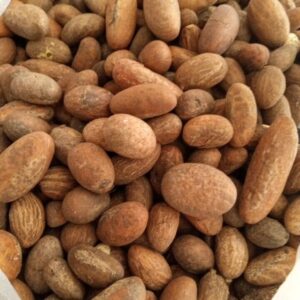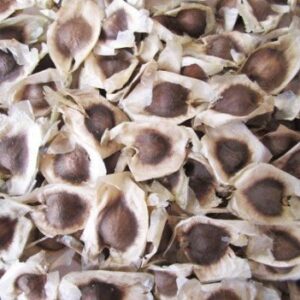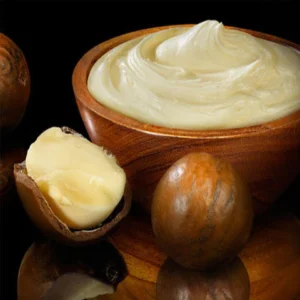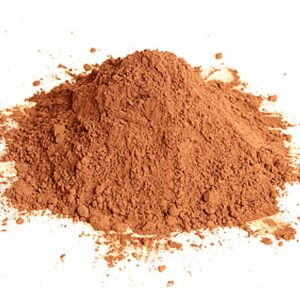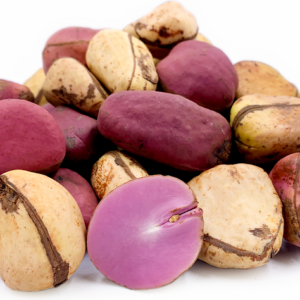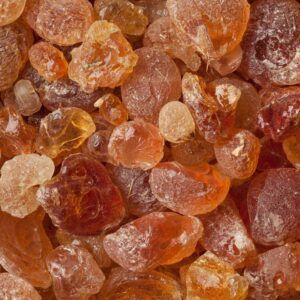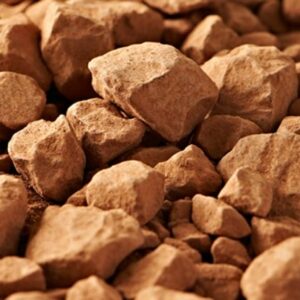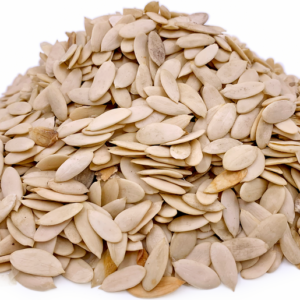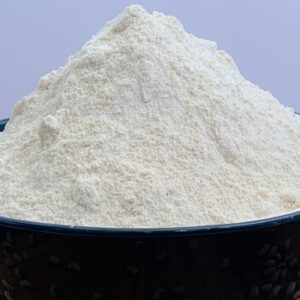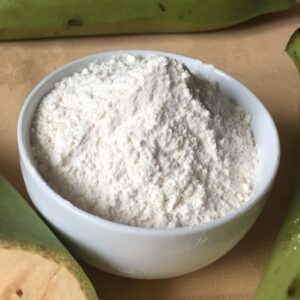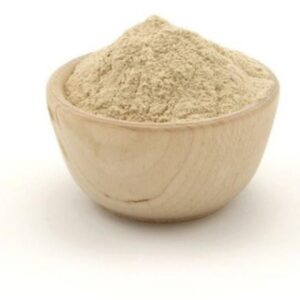-
BITTER COLA NUTS
BITTER KOLA NUTS: Bitter Kola, scientifically known as Garcinia Kola, is a flowering plant native to the tropical rainforest regions of central and west Africa. It has been utilized for centuries in traditional African medicine due to its various medicinal properties found in its fruit, seeds, nuts, and bark.
Uses of Bitter Kola: Bitter Kola, beyond its role in traditional African medicine, finds application in the food industry and pharmaceutical sector. It serves as a key ingredient in the production of drugs, soft drinks, and energy beverages.
-
MORINGA SEEDS
Moringa seeds are the seeds derived from the Moringa oleifera tree, often referred to as the “miracle tree” or “drumstick tree.” These seeds are found within the long pods of the Moringa tree and are known for their numerous health benefits and nutritional value.
Moringa seeds are valued for their efficacy in addressing various health concerns such as asthma, diabetes, obesity, menopausal symptoms, weight loss, digestive issues, and more.
USES OF MORINGA SEEDS:
- Medicinal Benefits: Packed with antioxidants, they’re traditionally used to alleviate inflammation, fight microbes, and relieve pain, aiding in conditions like asthma, diabetes, arthritis, and digestive issues.
- Nutritional Boost: Rich in vital nutrients like vitamins, minerals, and amino acids, they’re often included in dietary supplements to enhance overall health.
- Cosmetic Aid: Their nourishing qualities make them ideal for skincare products, aiding in skin rejuvenation, collagen production, and reducing signs of aging.
- Water Clarification: With natural coagulants, they’re effective in purifying water by eliminating impurities and pathogens, particularly beneficial in areas with limited access to clean water.
- Culinary Delight: Edible and versatile, they can be roasted, fried, or incorporated into various dishes, lending a nutty flavor and boosting nutritional value in soups, stews, salads, and more.
Contact us for supply.
-
Shea Butter & Shea Nuts
Extracted from the nuts of the shea tree, shea butter is a versatile fat with an off-white or ivory color, solidifying at warm temperatures. Indigenous to West Africa, the region remains a primary source of shea butter worldwide.
For centuries, shea butter has been prized in cosmetics for its rich concentration of vitamins and fatty acids, offering exceptional skin-smoothing, soothing, and conditioning properties.
At DabuchiAgro, we supply and export Nigeria-grade Shea Butter & Shea Nuts to international buyers across the globe.
-
Natural and Alkalized Cocoa Powder
Cocoa powder is derived from cocoa beans grown in pods on the cacao tree. After a process of fermentation, drying, roasting, and cracking, the beans are ground to extract cocoa butter, resulting in a dark brown paste known as chocolate liquor. Subsequent drying and grinding yield the familiar powder form, known as unsweetened cocoa.
Health Benefits of Cocoa Powder:
- Diabetes Management: Rich in flavanols, cocoa powder aids in improving insulin sensitivity and blood sugar control.
- Hypertension Control: Abundant in antioxidants, cocoa powder promotes vasodilation, thus lowering blood pressure.
- Enhanced Brain Function: Cocoa powder’s epicatechin compound supports increased circulation and the growth of blood vessels, leading to improved cognition and memory.
- Cancer Prevention: High concentrations of catechins and procyanidins in cocoa powder offer protective effects against oxidative stress and chronic inflammation, reducing cancer risks.
- Improved Sexual Performance: Cocoa powder boosts nitric oxide production, facilitating better blood flow for enhanced erectile function in men.
- Relief from Menstrual Cramps: Natural theobromine and alkaloids in cocoa powder help alleviate pain and discomfort during menstrual periods.
-
Bitter Kola Nut
Kola nut is the seed of the kola tree, scientifically known as Cola acuminata or Cola nitida. It is native to the tropical rainforests of Africa and is commonly used as a flavoring ingredient in beverages due to its caffeine content. Kola nut is also valued for its cultural significance in many West African countries, where it is often used in traditional ceremonies, social gatherings, and rituals.
Originating from the lush tropical rainforests of Africa, the kola nut is a prized gem obtained from the kola tree. Rich in caffeine, it lends its distinct flavor to a myriad of beverages. Fondly known as “cola,” this nut contains stimulants like caffeine and theobromine, making it a popular choice for various applications.
Recognized by the U.S. Food and Drug Administration (FDA) as safe for human consumption, kola nut extract holds the status of a natural food flavoring. Additionally, the FDA has approved kola extract for use as an inactive ingredient in specific pharmaceutical formulations.
Versatile Uses of Kola Nut:
In the western world, kola nut extract finds its way into the production of an array of beverage drinks, energy boosters, cosmetics like beauty soaps and creams, chewing gums, and delectable sweets. Its invigorating properties make it a sought-after ingredient for enhancing flavors and providing a natural energy boost.
However, its significance transcends borders and cultures. In Nigeria and numerous West African countries, the kola nut is deeply ingrained in traditional hospitality, social ceremonies, and cultural rituals. It symbolizes warmth, friendship, and communal unity, often shared as a gesture of goodwill during gatherings and celebrations.
-
Charcoal
Charcoal: Nature’s Efficient Fuel
Charcoal, primarily derived from tropical woods and occasionally coconut shells, serves as a versatile and cost-effective fuel source. Produced through a process known as carbonization, where wood is burnt at high temperatures in the absence of air, charcoal offers numerous advantages and applications.
Advantages of Charcoal:
- Cost-Effective Cooking: Charcoal provides an affordable cooking alternative for communities in developing regions where access to modern fuel sources like cooking gas or electricity is limited.
- Renewable Resource: Despite its intensive production process, charcoal production can be sustainable when managed responsibly, as new trees can be planted to replace those harvested.
- High Heat Output: Charcoal burns at high temperatures, making it ideal for grilling, barbecuing, and other cooking methods that require intense heat.
- Long Burning Time: Charcoal burns slowly and steadily, allowing for extended cooking sessions without the need for constant refueling.
- Versatile Use: Apart from cooking, charcoal finds applications in industries such as metallurgy, agriculture (as a soil amendment), and water purification.
-
Gum Arabic
Gum Arabic: Nature’s Versatile Emulsifier
Gum Arabic, sourced from the resin of perennial trees cultivated predominantly in Nigeria and selected African countries, stands as a prized commodity with high commercial value. Known for its adhesive properties and multifaceted applications, Gum Arabic plays a vital role across various industries, both locally and internationally.
Uses of Gum Arabic:
- Thickener and Stabilizer: Gum Arabic serves as a natural thickener and stabilizer in various food and beverage products, enhancing texture and prolonging shelf life.
- Emulsifier: With its emulsifying properties, Gum Arabic facilitates the blending of ingredients that would otherwise separate, ensuring uniformity in formulations.
- Flavor Carrier: Due to its neutral taste and odor, Gum Arabic acts as an ideal carrier for flavors and fragrances, dispersing them evenly throughout products.
- Binder: Its binding properties make Gum Arabic invaluable in industries such as pharmaceuticals, where it helps hold ingredients together in tablets and capsules.
- Encapsulating Material: Gum Arabic is utilized in encapsulation processes to protect sensitive substances, such as vitamins and minerals, from degradation and improve their stability.
- Confectionery and Cosmetics: Widely employed in confectionery and cosmetic formulations, Gum Arabic contributes to the texture, appearance, and overall quality of products.
Embrace the versatility of Gum Arabic and unlock its potential across various industries, from food and beverages to pharmaceuticals and beyond. With its natural properties and wide-ranging applications, Gum Arabic continues to be a staple ingredient in countless products worldwide.
-
Natural Cocoa Cake
Natural Cocoa Cake Origin: Hailing from regions renowned for superior cocoa production, our Natural Cocoa Cake originates from select cocoa plantations where premium-quality cocoa seeds are cultivated with care and expertise.
What it is: Natural Cocoa Cake is the result of pressing cocoa liquor, yielding a dense mass of solids with a low cocoa butter content. These solids are then finely ground into small pieces, preserving the essence of cocoa in its purest form.
Uses:
- Baking Marvels: Incorporate our Natural Cocoa Cake into your baking creations, from moist chocolate cakes and fudgy brownies to delectable cookies and indulgent desserts, imparting rich cocoa flavor and depth.
- Beverage Enhancement: Elevate your hot beverages with a spoonful of our Cocoa Cake, enhancing the flavor and aroma of your favorite hot chocolate, coffee, or smoothie recipes.
- Dessert Masterpieces: Create decadent desserts like chocolate truffles, mousses, and ice creams with the velvety texture and intense cocoa taste of our Cocoa Cake, tantalizing your taste buds with every spoonful.
-
Egusi Seed
Egusi Seed: Nature’s Bounty
Egusi, also known as Melon Seed, is a cherished staple in Nigerian cuisine, celebrated for its versatility and health benefits. From savory soups to nutritious spreads, Egusi seeds play a central role in culinary traditions and holistic wellness practices.
Cultivation and Preparation: Primarily cultivated for consumption in Nigeria, Egusi seeds undergo a meticulous process before they grace the dining table. After being sun-dried, the seeds are ground plain or roasted/fried, imparting a rich, nutty flavor essential for dishes like Egusi soup and stew. Additionally, fermented Egusi seeds are used to create the local spice known as ogiri, adding depth and complexity to traditional recipes.
-
Beans Flour
Beans Flour: A Nutritious Delight
Beans flour is a finely ground powder made from dried beans. It serves as a versatile ingredient in cooking and baking, adding flavor, texture, and nutritional value to a wide range of dishes. Typically used in traditional African cuisine, beans flour is popular for making dishes such as moi-moi (a steamed bean pudding), akara (bean cakes), and bean-based soups. It offers a convenient alternative to whole beans, as it eliminates the need for soaking, peeling, and grinding, making meal preparation faster and more convenient. Additionally, beans flour is a rich source of protein, fiber, vitamins, and minerals, contributing to a balanced and nutritious diet.
Beans Flour offers a convenient and nutritious solution for a variety of culinary creations, from traditional delicacies to contemporary dishes.
Crafted with Care: Our Beans Flour is meticulously crafted from premium-quality beans, dried and ground multiple times to achieve the perfect consistency. Each batch undergoes rigorous processing and packaging to ensure optimal freshness and quality, allowing you to enjoy the authentic taste of beans in every dish.
-
Plantain Flour
Plantain Flour: Nature’s Nutrient-Rich Staple
Plantain flour, commonly referred to as “elubo ogede,” is a versatile culinary ingredient made from unripe plantains that have been processed into a fine powder. Widely embraced in many parts of Western Africa, plantain flour serves as a nutritious alternative to traditional staple foods.
Crafted for Health and Flavor: Our plantain flour is carefully crafted from premium-quality unripe plantains, ensuring a high standard of taste and nutritional value. Through a meticulous processing method, the plantains are transformed into a fine flour, preserving their natural goodness and flavor.
Nutritional Benefits:
- Dietary Fiber: Rich in dietary fiber, plantain flour supports digestive health, promotes satiety, and helps regulate blood sugar levels, making it an excellent choice for individuals seeking a balanced diet.
- Complex Carbohydrates: As a source of complex carbohydrates, plantain flour provides sustained energy release, keeping you feeling fuller for longer and supporting overall vitality.
- Vitamins and Minerals: Packed with essential vitamins and minerals, including potassium, vitamin A, and vitamin C, plantain flour contributes to immune function, vision health, and overall well-being.
-
Cocoyam Powder
Cocoyam Powder: A Nourishing Staple of African Cuisine
Cocoyam powder, also known as ede in Igbo culture, is a cherished ingredient in African culinary traditions, prized for its versatility and nutritional benefits. Made from the edible root of the cocoyam plant, this tropical tuber crop is a staple in West African cuisine, celebrated for its rich flavor and thickening properties in soups and stews.
Culinary Heritage and Versatility: Cocoyam powder serves as a traditional soup thickener and culinary essential, enhancing the flavor and texture of a variety of African dishes. From bitter leaf soup to oha soup and beyond, cocoyam powder adds depth and richness to ethnic delicacies, creating a satisfying dining experience for all.
Hygienically Processed and Packaged: Our DabuchiAgro Cocoyam Powder is meticulously processed and packaged to preserve its nutritional value and freshness. Sourced from high-quality edible cocoyam roots, our powder is carefully packed in airtight containers, ensuring optimal quality and flavor with every use.
Nutritional Bounty of Cocoyam Powder:
- Carbohydrate Richness: Cocoyam powder serves as an excellent source of carbohydrates, providing sustained energy and fuel for the body’s daily activities.
- Dietary Fiber: Loaded with dietary fiber, cocoyam powder supports digestive health, promotes satiety, and aids in the easy passage of stool, contributing to overall well-being.
- Essential Minerals and Vitamins: Cocoyam powder boasts a rich nutritional profile, containing vital minerals such as magnesium, zinc, iron, manganese, copper, and vitamins including thiamine, niacin, riboflavin, vitamin B, vitamin C, and vitamin E.
